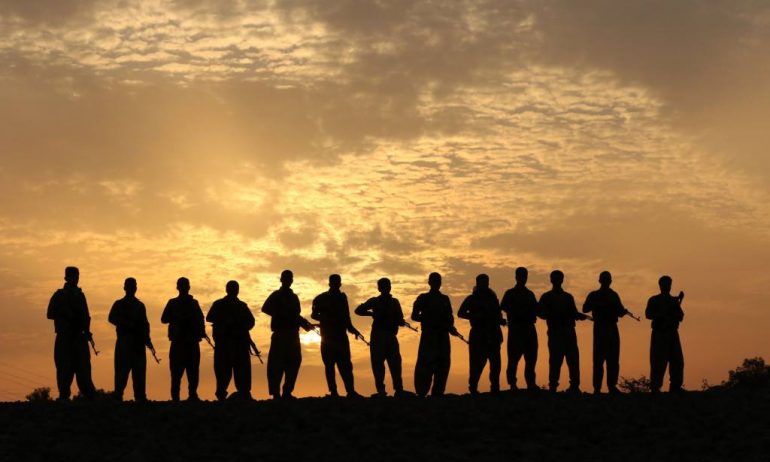As the deadline approaches for the disarmament and relocation of Iranian Kurdish opposition groups situated in the Kurdistan Region, high-stakes negotiations are unfolding privately to avert a military strike against their strongholds.
There are emerging reports that Iran is gathering military forces along its border with the Kurdistan Region, ostensibly in preparation for an offensive against these opposition entities.
Yielding to pressure from Tehran, the Kurdistan Democratic Party (KDP) has successfully persuaded both the Komala and the Kurdistan Democratic Party of Iran (PDKI) to vacate their encampments in the Halgurd and Berbzin mountains located in Erbil province.
An informed source within the Kurdistan Regional Government (KRG), who requested anonymity due to the sensitivity of the talks between Iran and Iraq, told the Citadel that three potential solutions are currently under discussion.
The source indicated that the first proposal involves relocating the Kurdish groups to Azerbaijan, a suggestion that Iran has summarily dismissed.
The second proposal suggested relocating the fighters to a camp within Nineveh province, an idea promptly dismissed by the Kurdish opposition groups themselves.
According to the same source, the third proposal entailed disarming the Kurdish factions and confining them to their current camps. Iran, however, added a stipulation: the extradition of 22 key leaders, to be handed over by the regional government. The source indicated that while the KRG cannot comply with this demand, Iran has proposed conducting operations to capture these individuals.
The two dozen figures sought by Tehran include top leadership and military commanders from Komala, the PDKI, and the Kurdistan Freedom Party (PAK). Some of those targeted are currently in clandestine locations within the Kurdistan Region, while others are believed to be in Europe.
Amjad Panahi, a high-ranking Komala official who is among those wanted by Tehran, informed the Citadel that “leaders of the Kurdish opposition are now under heightened security and are safeguarded by our Peshmerga forces.”
With Iran’s September 19 deadline fast approaching, the Citadel has learnt that active discussions are ongoing between the Kurdish parties and the United Nations. Mohammad Nazif Qaderi, a member of the PDKI’s political bureau, confirmed that talks are indeed underway but refrained from divulging any specifics about discussions with the United Nations.
As Iran continues to mobilize forces along its border, the KDP has disarmed the PAK’s heavy artillery, under the leadership of Hussein Yazdan. Simultaneously, members of both the PDKI and Komala have left from their camps to urban centers within the Kurdistan Region, prompted by fears of an impending Iranian offensive.
Arsalan Yarahmadi, a board member of Hangaw for Human Rights Monitoring in Kurdish Areas of Iran, told the Citadel that Iran has dispatched a significant military force from Hamadan and Tabriz to the border area. He warned that the PDKI’s camp in Koya is vulnerable to an Iranian attack and in danger of total destruction.
As the clock ticks toward the looming deadline, all attention is focused on the eastern border of the Kurdistan Region. Tehran has signalled that its patience has worn thin regarding these opposition groups, many of whom have resided in Iraq for decades.


